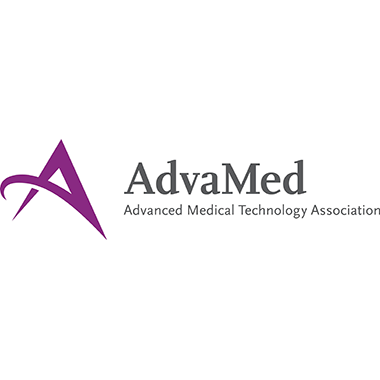

The recent Supreme Court ruling in Amgen v. Sanofi reminds patent practitioners that the scope of disclosure defines what has been enabled and that purely functional claiming can be problematic.

The recent Supreme Court ruling in Amgen v. Sanofi reminds patent practitioners that the scope of disclosure defines what has been enabled and that purely functional claiming can be problematic.

RFID and IoT technologies can strengthen the medical device supply chain and improve workflows. The following real-life examples illustrate the benefits that can be achieved.

A recent study from Ethicon and the Cleveland Clinic outlined opportunities and barriers to better sustainability practices in operating rooms. We spoke with Vishnu Kalra, President, U.S. Ethicon, to learn more about the study’s findings, Ethicon’s efforts to develop more sustainable products and practices, and how other companies can get started.

AdvaMed has filed comments with the EPA regarding proposed regulations of ethylene oxide and their impact on patient care.

Maria Shepherd, president and founder of Medi-Vantage and co-founder of MedExecWomen, discusses her career in the medical device industry, what led her to launch her own company and the joy of “finding her tribe” among fellow female executives committed to bringing up the next generation of women leaders in MedTech.

The UK is an appealing market for MedTech businesses, but there are some important issues that companies will need to be familiar with to ensure they fully understand the UK regulatory landscape. The role of the UK Responsible Person is one of the most important.

Results from the AVEIR DR i2i Investigational Device Exemption (IDE) study through three-months post-implant showed a 98.3% implant success rate for physicians and more than 97% of people had a successful atrio-ventricular synchrony, so that the upper and lower chamber were beating normally, despite different types of underlying slow heart rhythms.

Shuvo Roy, Ph.D., Professor of Bioengineering at UCSF and Technical Director of The Kidney Project, and his research partners have developed an artificial kidney constructed of semiconductor silicon wafers that remove waste and toxins from the blood and a cell therapy unit that replicates other kidney functions. Their prototype, powered entirely by blood pressure, filtered blood and created urine in a pre-clinical trial.

As technology component pricing continues to rise, MedTech manufacturers are applying proven methods and exploring new approaches to maintain profitability and extend product lifecycles.

Pulvinar Neuro has received a $3 million dollar NIH grant to further its research on noninvasive transcranial alternating current stimulation for the treatment of depression.